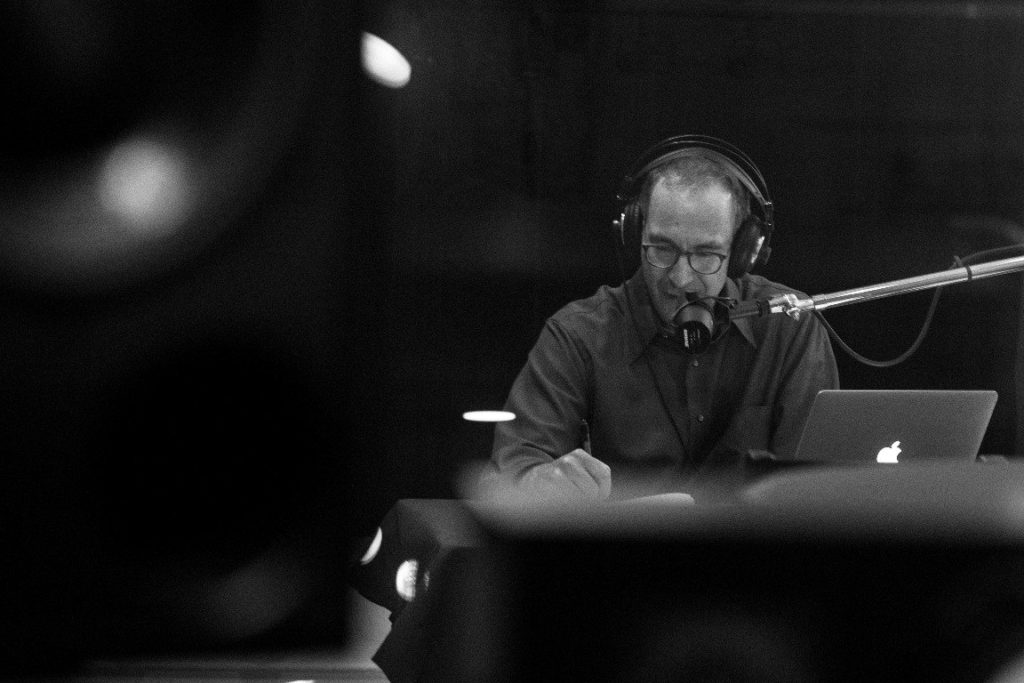Podcast
The ‘Uber For Health Care’ Aims to Transform the Marketplace
CEO Walter Jin explains on the latest episode of “The Bottom Line” podcast how the Uber model represents a part of what the company does — but don’t forget about FaceTime, OpenTable, and more.

Like many digital startups, Pager originally pitched itself as the Uber for X—in its case, as the “Uber for healthcare,” a label that made all the more sense given that one of the company’s founders, Oscar Salazar, also helped to launch the real Uber.
But as Pager has brought in a new CEO, it has found that Uber isn’t quite the right analogy anymore.
When you order a car to pick you up, “you know that you want an UberX or UberXL,” Walter Jin, who now leads Pager, told me on the latest episode of my podcast, The Bottom Line. But when it comes to medicine, “I would surmise that people don’t know which care setting they really need to go to—whether it’s ER, urgent care, primary-care physician, specialist, just getting a . . . lab order or a prescription pharmaceutical. We don’t know. All we know is that we’re sick.”
If someone wants to go see a regular doctor, Jin adds, it can often take weeks to get an appointment. That “leaves us really just to wallow at home and suffer or we go to the ER”—which can be inconvenient and costly.
Pager has been trying to change this scenario by steadily broadening its offerings. Feeling yucky? Now, you tap into Pager and begin with a free interactive session (via chat, voice, or video) with a nurse at the company’s “command center.”
This setup was inspired in part by what Jin himself does when he’s under the weather: He simply reaches out to his brother, who is an emergency room doctor, by text or FaceTime. “He literally just tells me what to do,” Jin says. “We can help you in the same way that my brother does for me.”
The command-center nurse, for instance, might advise you to head straight to the emergency room or to urgent care, if your condition is serious enough. Or this intake conversation might lead to a more extensive telemedicine session with a physician or a house call visit from a Pager-contracted doctor (back to Uber again). Or you might nail down the next available appointment at a local doctor’s office by using Pager’s scheduling app—a feature that Jin likens to OpenTable. Another service now on Pager, called PokitDok, will help you check your insurance coverage.
“We’re really a traffic cop for the healthcare system,” Jin says.
Among the company’s biggest challenges is how to direct more traffic across the country. Pager, which has raised about $40 million in funding since its inception in 2014, currently serves about 100,000 people a year in select parts of New York, Florida, Texas, and New Jersey (where it struck a major deal last fall with Horizon Blue Cross Blue Shield, which promises to swell its numbers). But penetrating new communities is tough.
That’s largely because markets are highly localized. “When you go to Nashville, the healthcare system and the players are different than if you go to Dallas, Texas, or Oakland, California,” Jin explains. “While we’d love to be a national app that everyone can just download . . . it just doesn’t work that way.”
Jin, who has been involved in the business side of the healthcare world since the mid-1990s, was Pager’s non-executive chairman and an investor in the company through his Three Fields Capital before becoming CEO a little more than a year ago. He credits Salazar and his two co-founders (all of whom remain in senior roles at Pager) with recognizing that they needed to bring in a leader with deep experience in the field.
“As we spent on time on the board talking about the nuances in healthcare,” Jin says, “I think they really started to take a very humble approach to how difficult our industry is to transform.”
After all, while Jin is happy to invoke Uber, FaceTime, and OpenTable, he is quick to point out: “It’s not Snapchat. . . . It’s extremely, extremely complicated.”
You can listen to my entire interview with Jin here, along with Megan Kamerick reporting on a mental-health app called Woebot, and Kanyi Maqubela exploring the fine line “between exploitative and empowering” in consumer finance.
The Bottom Line is a production of Capital & Main.

-

 Latest NewsFebruary 3, 2026
Latest NewsFebruary 3, 2026Amid the Violent Minnesota Raids, ICE Arrests Over 100 Refugees, Ships Many to Texas
-

 Featured VideoFebruary 4, 2026
Featured VideoFebruary 4, 2026Protesters Turn to Economic Disruption to Fight ICE
-

 The SlickFebruary 2, 2026
The SlickFebruary 2, 2026Colorado May Ask Big Oil to Leave Millions of Dollars in the Ground
-

 Column - State of InequalityFebruary 5, 2026
Column - State of InequalityFebruary 5, 2026Lawsuits Push Back on Trump’s Attack on Child Care
-

 Column - California UncoveredFebruary 6, 2026
Column - California UncoveredFebruary 6, 2026What It’s Like On the Front Line as Health Care Cuts Start to Hit
-

 The SlickFebruary 10, 2026
The SlickFebruary 10, 2026New Mexico Again Debates Greenhouse Gas Reductions as Snow Melts
-

 Latest NewsFebruary 12, 2026
Latest NewsFebruary 12, 2026Trump Administration ‘Wanted to Use Us as a Trophy,’ Says School Board Member Arrested Over Church Protest
-

 Latest NewsFebruary 10, 2026
Latest NewsFebruary 10, 2026Louisiana Bets Big on ‘Blue Ammonia.’ Communities Along Cancer Alley Brace for the Cost.

